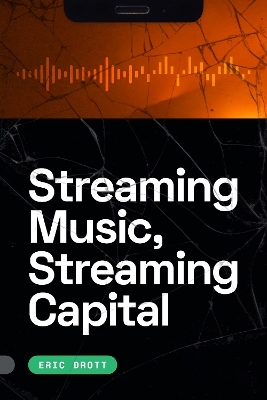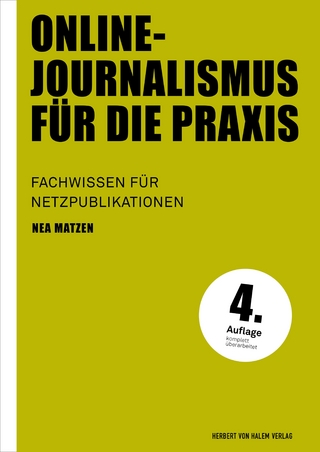
Streaming Music, Streaming Capital
Seiten
2024
Duke University Press (Verlag)
978-1-4780-2574-0 (ISBN)
Duke University Press (Verlag)
978-1-4780-2574-0 (ISBN)
Eric Drott undertakes a wide-ranging study of the political economy of music streaming to engage in a broader reconsideration of music’s complex relation to capitalism.
In Streaming Music, Streaming Capital, Eric Drott analyzes the political economy of online music streaming platforms. Attentive to the way streaming has reordered the production, circulation, and consumption of music, Drott examines key features of this new musical economy, including the roles played by data collection, playlisting, new methods of copyright enforcement, and the calculation of listening metrics. Yet because streaming underscores how uneasily music sits within existing regimes of private property, its rise calls for a broader reconsideration of music’s complex and contradictory relation to capitalism. Drott's analysis is not simply a matter of how music is formatted in line with dominant measures of economic value; equally important is how music eludes such measures, a situation that threatens to reduce music to a cheap, abundant resource. By interrogating the tensions between streaming’s benefits and pitfalls, Drott sheds light on music’s situation within digital capitalism, from growing concentrations of monopoly power and music’s use in corporate surveillance to issues of musical value, labor, and artist pay.
In Streaming Music, Streaming Capital, Eric Drott analyzes the political economy of online music streaming platforms. Attentive to the way streaming has reordered the production, circulation, and consumption of music, Drott examines key features of this new musical economy, including the roles played by data collection, playlisting, new methods of copyright enforcement, and the calculation of listening metrics. Yet because streaming underscores how uneasily music sits within existing regimes of private property, its rise calls for a broader reconsideration of music’s complex and contradictory relation to capitalism. Drott's analysis is not simply a matter of how music is formatted in line with dominant measures of economic value; equally important is how music eludes such measures, a situation that threatens to reduce music to a cheap, abundant resource. By interrogating the tensions between streaming’s benefits and pitfalls, Drott sheds light on music’s situation within digital capitalism, from growing concentrations of monopoly power and music’s use in corporate surveillance to issues of musical value, labor, and artist pay.
Eric Drott is Associate Professor of Music Theory at the University of Texas at Austin and author of Music and the Elusive Revolution: Cultural Politics and Political Culture in France, 1968–1981.
Acknowledgments ix
Introduction 1
1. Streaming Music 22
2. Streaming Capital 63
3. Music as a Technology of Surveillance 101
4. Counterfeiting Attention in the Streaming Economy: Spam, Click Fraud, and Fake Artists 144
5. Streaming, Cheap Music, and the Crises of Social Reproduction 193
Epilogue 235
Notes 255
Bibliography 307
Index 331
| Erscheinungsdatum | 22.12.2023 |
|---|---|
| Zusatzinfo | 16 illustrations |
| Verlagsort | North Carolina |
| Sprache | englisch |
| Maße | 152 x 229 mm |
| Gewicht | 499 g |
| Themenwelt | Kunst / Musik / Theater ► Musik |
| Sozialwissenschaften ► Kommunikation / Medien ► Journalistik | |
| Sozialwissenschaften ► Kommunikation / Medien ► Medienwissenschaft | |
| Wirtschaft | |
| ISBN-10 | 1-4780-2574-3 / 1478025743 |
| ISBN-13 | 978-1-4780-2574-0 / 9781478025740 |
| Zustand | Neuware |
| Informationen gemäß Produktsicherheitsverordnung (GPSR) | |
| Haben Sie eine Frage zum Produkt? |
Mehr entdecken
aus dem Bereich
aus dem Bereich
Fachwissen für Netzpublikationen
Buch | Softcover (2024)
Herbert von Halem Verlag
CHF 54,60


